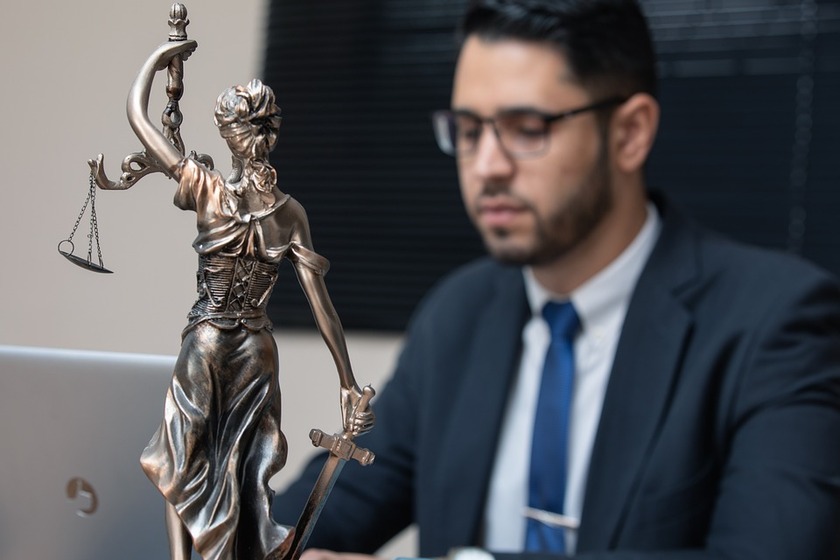
Suffering an injury due to someone else's negligence can be a physically and emotionally overwhelming experience. From dealing with medical care to navigating the complex legal system, victims often feel confused about what steps to take next. Understanding the personal injury process can help you feel more in control during this difficult time and ensure you get the compensation you deserve.
This article outlines what you can expect if you pursue a personal injury claim, from the moment of injury to final settlement, and offers helpful tips along the way.
What Is a Personal Injury Claim?
A personal injury claim is a legal dispute that arises when one person suffers harm from an accident or injury, and someone else might be legally responsible for that harm. The liable party’s insurance company typically pays compensation to the injured person for medical bills, pain and suffering, and other ongoing medical expenses.
Common types of personal injury claims include:
Car accidents
Slip and fall incidents
Medical malpractice
Workplace injuries
Product liability
Initial Steps After an Injury
1. Seek Immediate Medical Attention
Your health should be your top priority. Even if your injuries seem minor, it's essential to get evaluated by a medical professional. Some injuries don’t show symptoms immediately but can cause long-term health issues if left untreated. Having medical documentation is also critical for your legal claim.
For more information about healthcare processes following injury, you can refer to this helpful Legal Directory/Citation Link URL.
2. Document Everything
Start compiling evidence as soon as possible. This includes:
Photos of the scene and your injuries
Medical records and bills
Witness contact information
Police or incident reports
Keeping detailed records will strengthen your claim and make it easier for your attorney to build a solid case.
Choosing the Right Personal Injury Attorney
Not all attorneys are created equal. Choosing the right legal representation is crucial for a successful outcome. Look for an attorney who specializes in personal injury law, has a strong track record, and offers free consultations.
A skilled attorney will help:
Evaluate the strength of your case
Handle communications with insurance companies
Collect evidence and build your claim
Negotiate a fair settlement
You can explore your legal options with a trusted firm like Skiber law, which specializes in guiding injury victims through the legal maze.
The Legal Process: What to Expect
1. Case Evaluation
After your initial consultation, your lawyer will evaluate your claim. They will review your medical records, assess fault, and determine if you have a strong case. If both sides agree to move forward, a formal attorney-client relationship is established.
2. Investigation and Demand Letter
Your legal team will launch an investigation, collecting:
Eyewitness statements
Expert opinions
Surveillance footage, if available
Accident reconstructions
Once enough evidence is gathered, your lawyer will draft and send a demand letter to the at-fault party’s insurance company outlining your injuries, expenses, and the compensation you’re seeking.
3. Negotiations and Settlement
Most personal injury cases settle out of court. Negotiations may involve counter-offers, and it can take several weeks or months to reach an agreement. Your lawyer’s job is to ensure you’re not pressured into accepting a lowball offer.
If a fair settlement is reached, you’ll receive compensation. If not, your case may proceed to litigation.
4. Filing a Lawsuit
If negotiations fail, your lawyer may file a formal complaint with the court. This initiates the litigation process, which involves:
Discovery (exchange of evidence and information)
Depositions (sworn statements under oath)
Pre-trial motions
At any point during this process, the parties can still agree on a settlement.
5. Trial and Verdict
If your case goes to trial, both sides will present their arguments before a judge or jury. After hearing the evidence, the court will issue a verdict. Trials can be lengthy and expensive, so they’re typically considered a last resort.
Types of Compensation You May Receive
In a personal injury claim, you may be entitled to various types of compensation, including:
Medical expenses: Emergency room visits, surgery, rehabilitation
Lost wages: Time missed from work due to recovery
Pain and suffering: Emotional and physical distress
Loss of earning capacity: If your injury affects your future ability to work
Property damage: Vehicle repairs or replacement
Your attorney will work to ensure all these factors are considered in your settlement or court award.
How Long Does the Process Take?
The length of a personal injury case varies based on the complexity of the situation, the severity of the injuries, and the willingness of the insurance company to negotiate. Simple claims might settle in a few months, while more complex cases involving litigation could take a year or more.
Common Pitfalls to Avoid
Accepting the First Settlement Offer
Insurance companies often offer quick, low settlements hoping you’ll accept without question. Consult your lawyer before agreeing to any offer.
Not Following Medical Advice
Failing to follow your doctor's treatment plan can negatively impact your claim. Insurance adjusters may argue that your injuries aren’t serious or that you contributed to your own suffering.
Posting on Social Media
Avoid posting about your accident or injuries on social media. Insurance companies may monitor your online activity to find evidence that contradicts your claim.
When to Contact an Attorney
You should consult with a personal injury lawyer as soon as possible after your accident. Early legal advice helps protect your rights, ensures important evidence is preserved, and allows your attorney to begin negotiations promptly.
Final Thoughts
Being injured through no fault of your own can be a stressful and confusing ordeal. However, by understanding the personal injury process, you can approach your situation with greater clarity and confidence. Seeking prompt medical attention, gathering evidence, and working with an experienced attorney can significantly improve your chances of receiving fair compensation.
Whether you’ve been in a car accident, suffered a slip and fall, or experienced another kind of injury, remember that you have rights and you don’t have to navigate the journey alone.



















